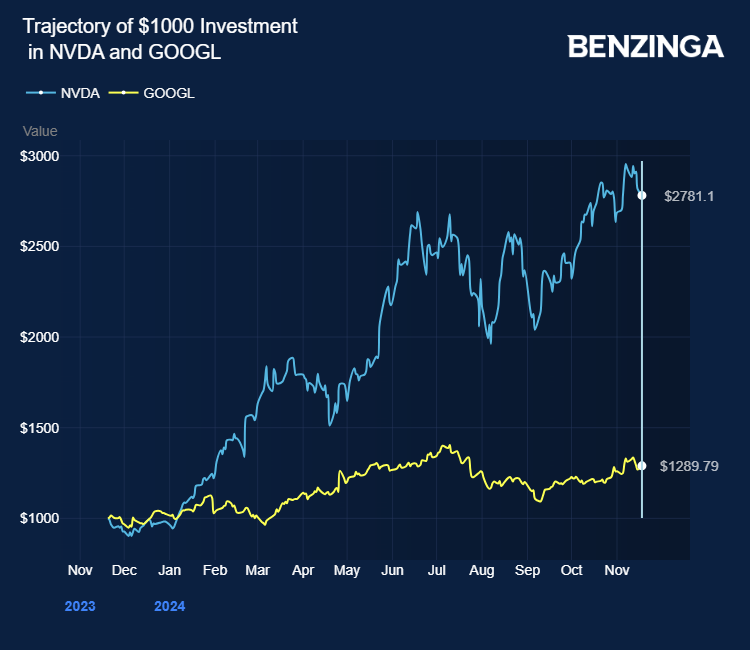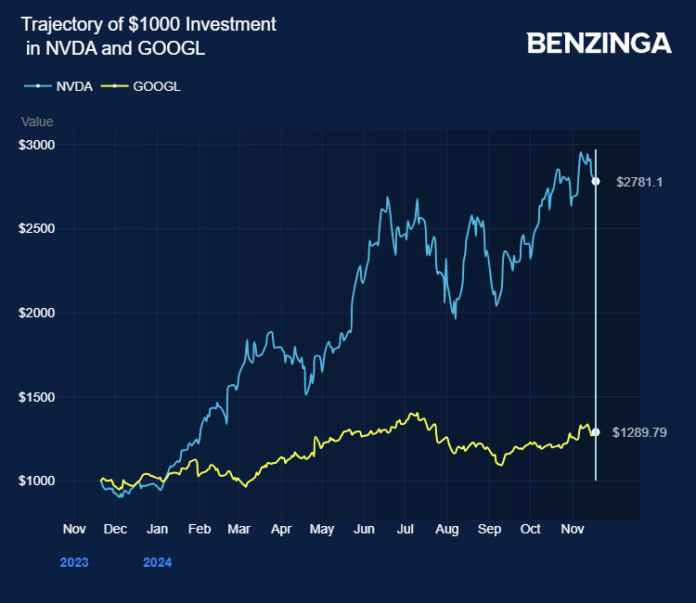New Partnership Between Nvidia and Google Aims to Boost Quantum Computing
Nvidia Corp NVDA has joined forces with Alphabet Inc GOOG GOOGL to enhance the development of advanced quantum computing technologies. This announcement came on Monday, marking a significant step in the race towards more powerful quantum devices.
Advancing Quantum Simulations
To tackle the challenges faced by current quantum hardware, such as noise, Google is utilizing Nvidia’s CUDA-Q platform along with the powerful Eos supercomputer. This combination allows researchers to run advanced simulations, refining their quantum processor designs.
Google Quantum AI integrates both quantum and classical computing, utilizing Nvidia’s technology to conduct detailed analyses of noise and qubit interactions. These types of simulations are crucial for improving quantum hardware and ensuring high accuracy in their operations.

Speeding Up Simulations Significantly
Guifre Vidal, a research scientist at Google Quantum AI, emphasized the necessity of reducing noise for the commercial viability of quantum computing. Nvidia’s accelerated computing capabilities allow Google to conduct simulations that were once too complex and time-consuming to pursue.
By using the CUDA-Q platform alongside 1,024 Nvidia H100 Tensor Core GPUs on the Eos supercomputer, Google completed one of the largest dynamic simulations of quantum devices to date. Tasks that used to take a week are now finished in minutes, with the ability to simulate devices containing up to 40 qubits marking a notable achievement in quantum hardware development.
The CUDA-Q platform will soon be accessible to engineers around the world, facilitating the improvement of quantum hardware designs. This opens pathways for future innovations in various industries.
Future Outlook and Current Challenges for Nvidia
Tim Costa, Nvidia’s director of quantum and high-performance computing, stressed the role of AI in advancing quantum computing technology. He believes the collaboration with Google will expedite the solution of complex issues in fields ranging from cryptography to advanced AI.
As Nvidia approaches its earnings report, analysts are raising concerns about technical difficulties with its latest AI chips amid broader market trends. Mizuho analyst Jordan Klein pointed out potential risks for Nvidia’s stock linked to overheating issues in its new Blackwell systems.
Klein mentioned that market reactions can often be swift and erratic, potentially leading to premature sell-offs. The Blackwell chips, launched in March with claims of delivering 30 times the performance of previous models, are reportedly facing thermal problems, which could affect significant clients like Meta Platforms Inc META, Microsoft Corp MSFT, and Alphabet.
While Klein remains hopeful about Nvidia’s long-term outlook, he suggests that short-term caution may be prudent for retail investors responding to such news.
In contrast, CNBC’s Jim Cramer viewed the situation differently, suggesting that skepticism towards negative reports might present a buying opportunity, as he believes the issues may be overstated.
Current Stock Movement
Price Actions: NVDA stock is currently up 2.47%, trading at $143.62 as of Tuesday’s last check.
Also Read:
Image via Shutterstock
This content was partially produced with the help of AI tools and was reviewed and published by Benzinga editors.
Market News and Data brought to you by Benzinga APIs

